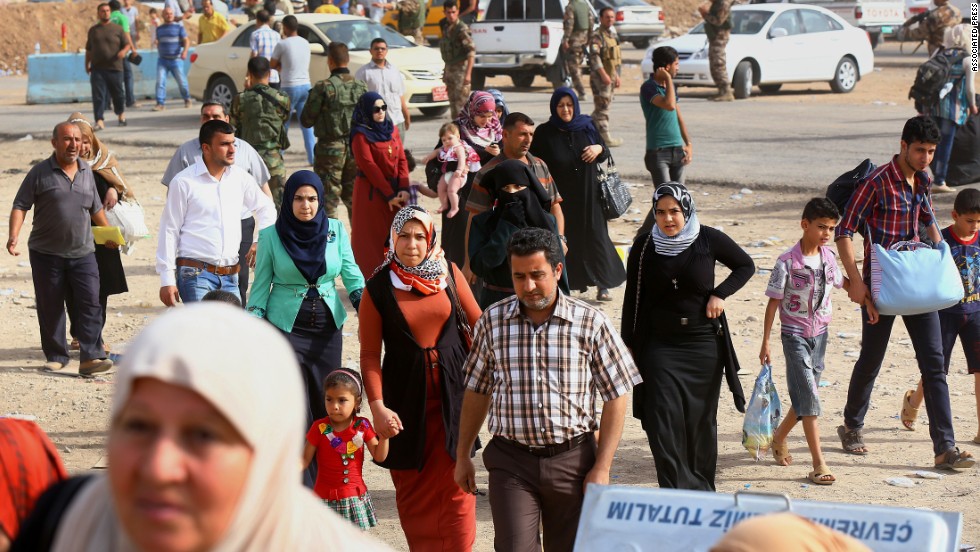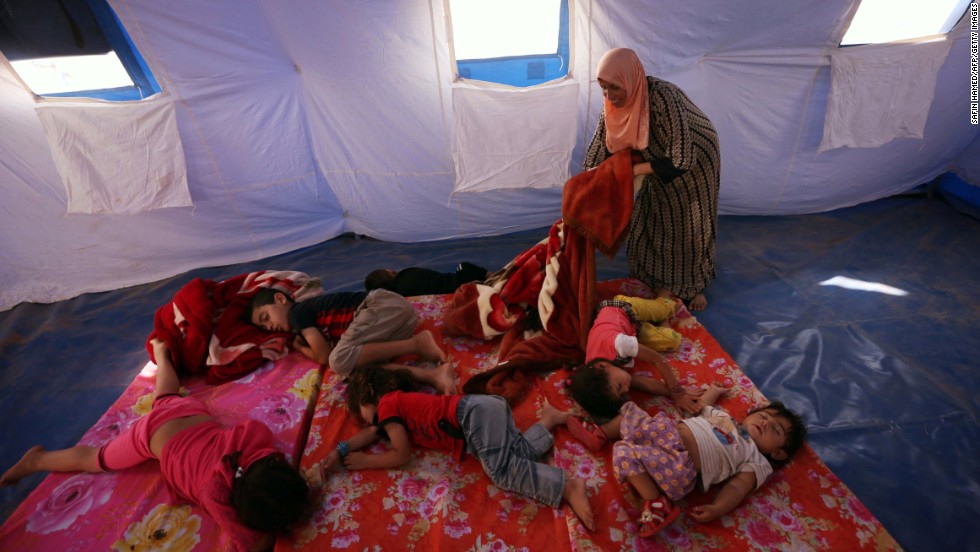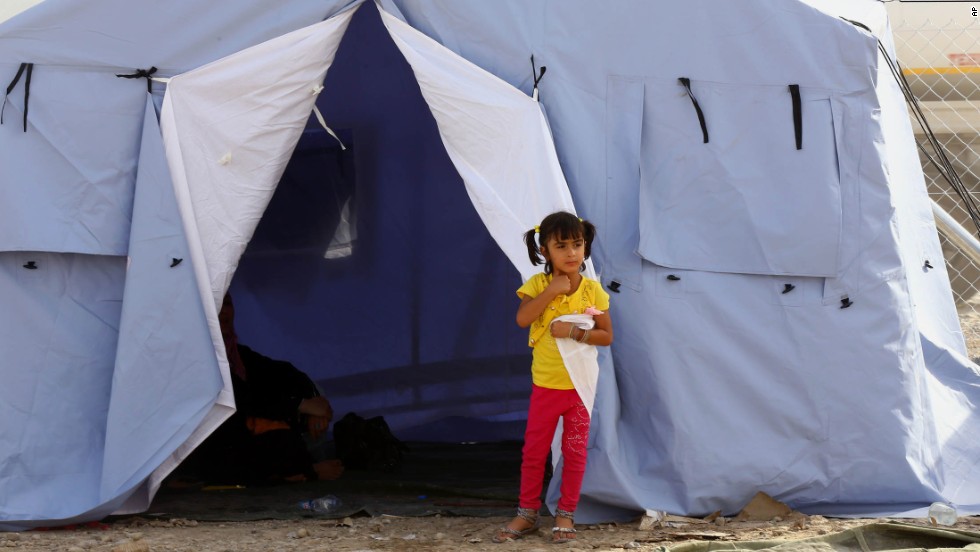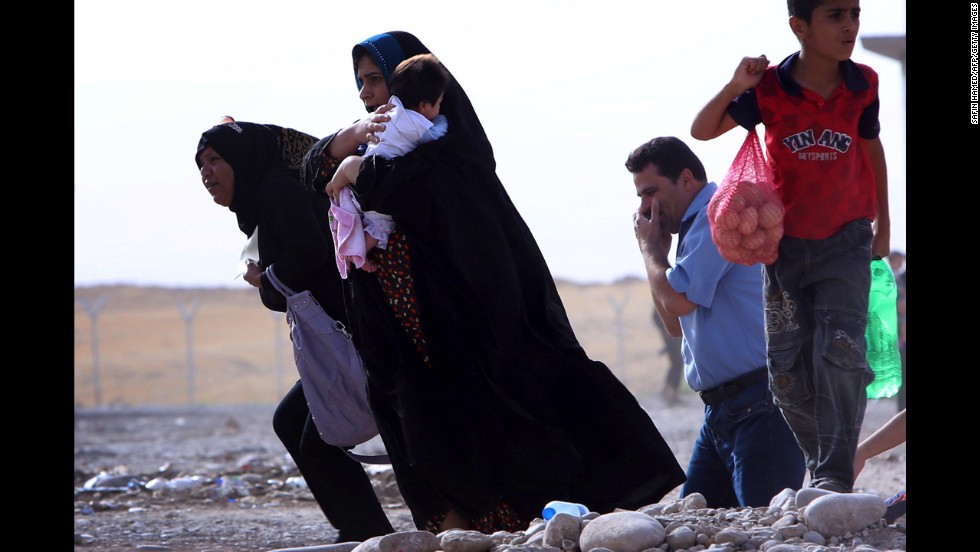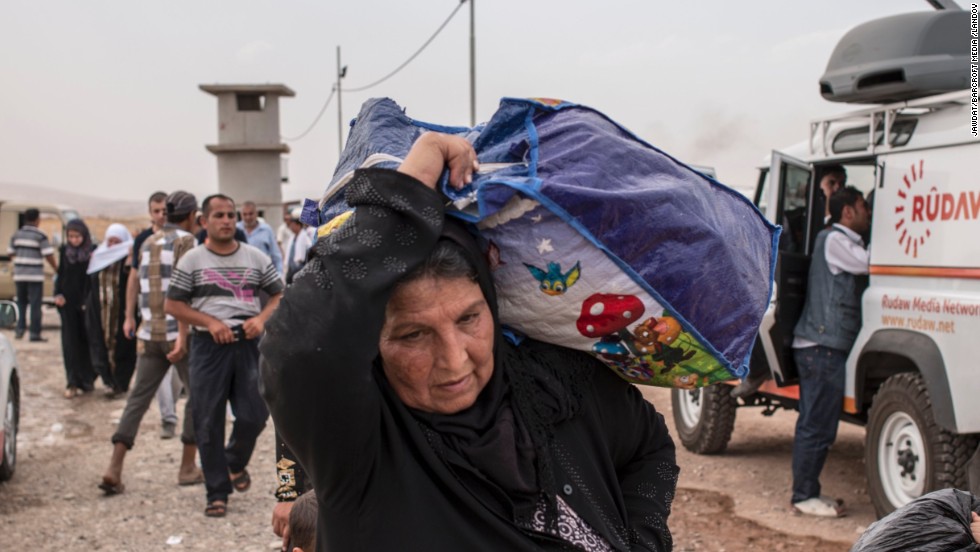Report blames former Iraq PM, other senior officials for fall of Mosul
, Updated 9:27 AM ET, Tue August 18, 2015, Source
Story highlights
- Former PM al-Maliki: Report has "no value"
- Persecution of women and minority religious groups reportedly followed Mosul's fall
- The report will be submitted to Iraq's judiciary for possible legal action
<cite class="el-editorial-source">(CNN)</cite>A report approved Monday by the Iraqi parliament blames the country's former prime minister, Nuri al-Maliki, and other senior officials for the fall of the northern city of Mosul in 2014.
The report will be submitted to the judicial branch of government for possible legal action.
But in a Facebook post, al-Maliki said the report had "no value."
Mosul, a city of more than 1 million people about 400 kilometers (250 miles) north of Baghdad, is one of the most important cities in northern Iraq. Its fall to the terrorist group ISIS was followed by disastrous consequences for residents in the area.
ISIS raided the Turkish Consulate in the city, capturing 49 employees, including the consul general. Turkish officials negotiated their release in September.
The trade-off for their release remains unknown, but until recently, Turkey declined to participate in the international fight against ISIS.
Women and members of minority religious groups in Mosul have reportedly been persecuted since the city fell.
The Mosul report, compiled by the Parliamentary Committee for Security and Defense, holds former government officials and military commanders responsible for the city's fall. The information was given to CNN by Intisar al-Jubouri, a member of parliament from Mosul province who attended the parliamentary session.
The report also blames other officials, including former Defense Minister Saadoun Al-Dulaimi and former Mosul Gov. Atheel al-Nujaifi, al-Jubouri said.
Al-Maliki, in a statement on Facebook, rejected any responsibility for what happened in Mosul while he was prime minister.
"What happened in Mosul was a conspiracy, it was planned in Ankara and then the conspiracy moved to Erbil," he wrote.
"There is no value in result that came out from the parliamentary commission about the fall of Mosul, it was dominated by political differences and it was absent of objectivity," he said.
Al-Maliki's office director, Husham al-Rikaby, confirmed that the remarks were made by the former prime minister, who is in Iran.
Al-Maliki, a Shiite Muslim, governed in a sectarian manner. His rule, under which Sunnis were largely shut out of government, has been blamed by observers for helping spark a Sunni uprising -- including by ISIS -- in 2014.


